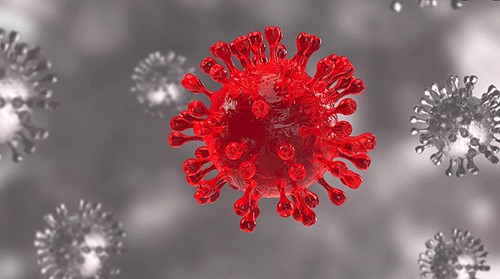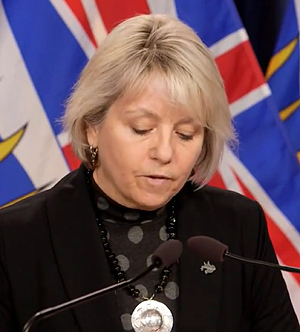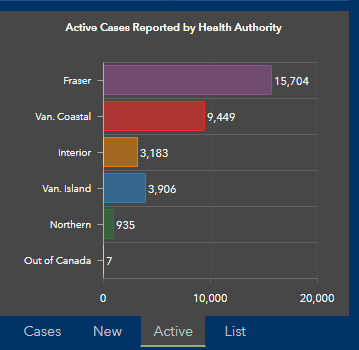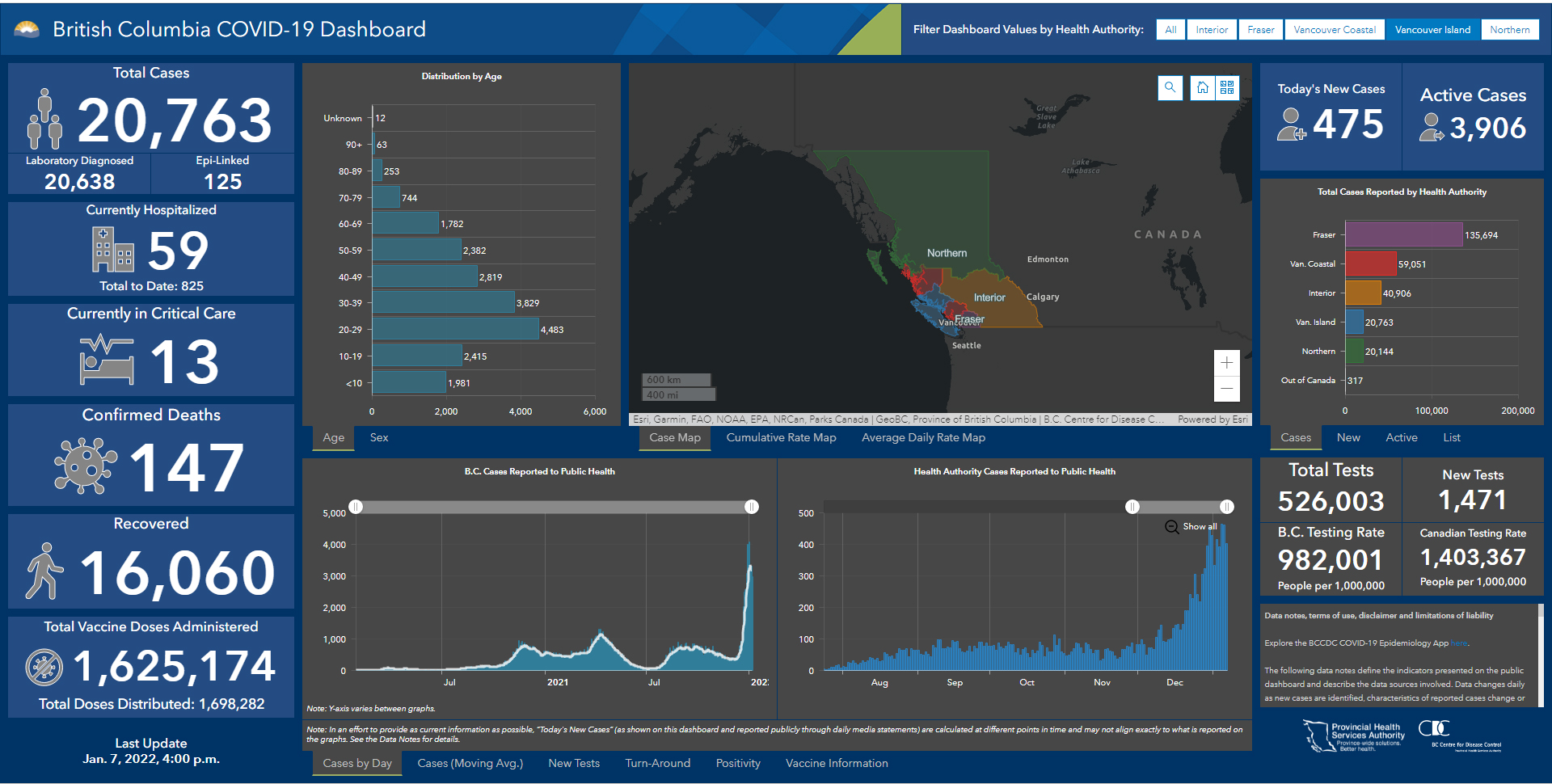
Saturday January 8, 2022 | VICTORIA, BC
by Mary P Brooke, B.Sc. | Island Social Trends
BC Centre for Disease Control page on COVID Variants: Last updated: January 7, 2022
Viruses naturally mutate over time and lead to new versions or variants. Variants include different lineages and sublineages that share similar genetic mutations.
New variants are monitored closely by agencies around the world. If a variant is detected that is known to spread more easily, cause more serious illness, or impact treatment or vaccine effectiveness, it is designated as a Variant of Concern (VoC).
If a new variant is detected that may transmit more easily or cause more severe illness, but this is not yet confirmed, it is referred to as a Variant under Monitoring (VUM).
Five COVID-19 Variants of Concern have been detected in BC: Alpha, Beta, Gamma, Delta (which pushed the Fall 2021 wave), and Omicron (which achieved dominance in the test results by early December 2021).
Key points:
- Omicron is presently the most commonly detected variant in B.C.
- Public health and researchers are studying Omicron closely.
- Omicron has been found to spread more easily between people than previous COVID-19 variants
- People can spread Omicron to others even if they have been vaccinated, especially when they are symptomatic.
- Omicron appears to cause less serious outcomes than other COVID-19 variants among people who have received at least 2 doses of a COVID-19 vaccine.
- Current vaccines provide good protection against severe illness and hospitalizations for Delta and Omicron
- A third vaccine dose may help provide more protection from Omicron
- Breakthrough infections can occur in people who are fully vaccinated
- People who have had COVID-19 can get sick again from new variants.
- Getting vaccinated is important even if you have already had COVID-19.
- Monitoring and research on the new COVID-19 variants is ongoing. The BC CDC page on COVID Variants will be updated regularly as more is known.
- More details on the current sampling and sequencing strategies can be found in the Testing for COVID-19 variants section below.
Reducing the Spread of COVID-19 Variants:
The new variants spread the same way as the original COVID-19, although some of the newer variants, such as Omicron, transmit much easier between people. This is due to the mutations of the virus making it more likely to replicate in the nasal passages and upper airway, instead of needing to go deeper into the host’s lungs.

The Omicron incubation period is thought to be about three days, compared to longer for the original COVID (SARS-CoV-2) and earlier variants.
Getting vaccinated, staying home when sick, visiting others outdoors or in small groups, wearing masks in indoor public spaces, increasing ventilation, and cleaning your hands are all important measures that will reduce the spread of COVID-19.
Symptoms:
Congestion and sore throat are the more commonly reported symptoms, whereas fever and loss of taste and smell were reported more so with earlier variants.
Infection by previous variants of COVID generated the need for hospitalization that resulted in long stays and often in ICU with the need for intubation to force breathing.
Omicron patients evidently aren’t as likely to need oxygen support in hospital, or to spend as long in hospital as with previous variants.
COVID case profile in Island Health:
As of BC CDC stats on Friday January 7, there were 20,763 total documented cases of COVID in Island Health. That’s up from 19,305 on January 4 (i.e. seven percent more cases added to the pandemic-long total in just three days), and up from 12,787 only five weeks ago on December 1, 2021 (i.e. 38 percent of the pandemic-long case total added in just the last 38 days).
The vaccination push is on:

Both Island Health Chief Medical Health Officer Dr Stanwick and Provincial Health Officer Dr Bonnie Henry this past week encouraged people to move up their booster (third-dose) appointments — if their 6-mo interval has passed. In other words, do it sooner and as soon as you can. That’s given the rapid spread of Omicron.
As of January 7, 2022 there have been 1,625,174 doses of COVID-19 vaccine (all types) administered in Island Health, pandemic-to-date (since December 2020). Of those, now 681,622 have been second doses, and 218,279 called ‘other’ (mostly third doses). Most of the doses administered to date have been Pfizer-BioNTech, but the proportion of Moderna shots is increasing, due to changes in supply as available to the federal government.
In the December 30-January 5 reporting period, 82.8% of COVID cases in BC were among people who were fully vaccinated (two doses). The data-adjustment for age (i.e. knowing that older people are more likely to experience COVID infection), shows fully-vaccinated people acquiring COVID in 4.7 of 100,000 population, while unvaccinated people were getting the infection 31.2 times in 100,000 population.

This past week politicians and public health were encouraging parents to get school-age kids (5-11 years) vaccinated. Pediatric Pfizer doses have been administered in Island Health (as reported Jan 7) as follows: 25,199 1st-dose, 34 2nd-dose; 15 doses administered done in the past 24 hr.
In BC 90 vaccination centres offer the pediatric dose, said Health Minister Adrian Dix on Friday January 7.
===== LINKS (BC Centre for Disease Control):





